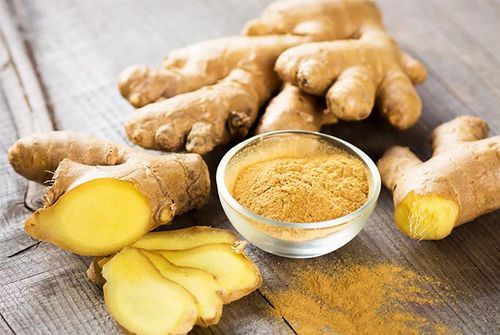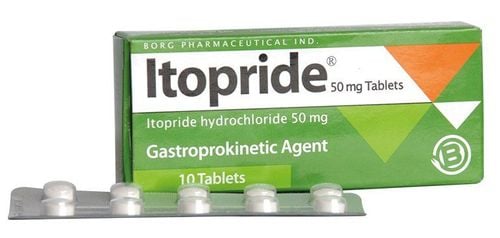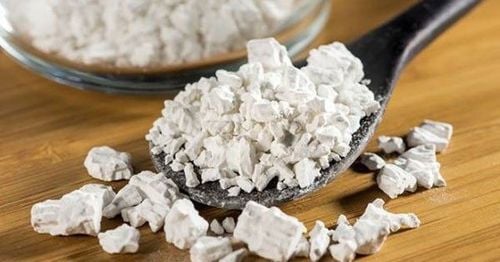Written by Dr. Mai Vien Phuong - Department of Examination & Internal Medicine - Vinmec Central Park International General Hospital.
When over-the-counter (OTC) or prescription options are not suitable, some people are turning to natural remedies to relieve symptoms, including honey.
1. What are the benefits of honey?
Honey has been used in Ayurvedic medicine for thousands of years to treat a variety of ailments. Some studies and anecdotal evidence suggest that honey can soothe the throat and reduce acid reflux symptoms.
Benefits of honey:
- Honey is rich in antioxidants. Some varieties may have as many antioxidants as fruits and vegetables.
- Honey contains natural hydrogen peroxide. This makes it effective in healing wounds.
- Honey also has some antibacterial and antiviral properties.
- Honey has been used medicinally throughout history. The exact benefits depend on the type of honey used. Raw, unpasteurized honey offers the most health benefits, nutrients, and enzymes.
- It is rich in antioxidants. These can help protect you from cell damage caused by free radicals.
Free radicals can contribute to the aging process. They can also lead to chronic diseases, such as heart disease and cancer. The antioxidants found in honey may help prevent heart disease.
Honey also has some antibacterial and antiviral properties. Not only can raw honey kill bacteria and fungi, but it also contains natural antiseptics.
Medical-grade makuna honey is considered the most effective honey for treating wounds. This honey may have other antibacterial properties along with its natural hydrogen peroxide.
Honey may also help with digestive issues, such as diarrhea and peptic ulcers.

2. What does research say?
Honey may work in several ways to help relieve acid reflux symptoms. An article published by the Indian Journal of Medical Research points out some of the key benefits:
- Honey is both an antioxidant and a free radical scavenger. Reflux may be caused in part by free radicals damaging the cells lining the digestive tract. Honey may prevent damage by scavenging free radicals.
- Honey may reduce inflammation in the esophagus.
- The texture of honey allows it to better coat the mucous membranes of the esophagus. This may contribute to longer-lasting pain relief.
- Honey is natural and can be used alongside other traditional treatments.
- Despite these claims, more formal research is needed to assess its true effectiveness as a treatment for acid reflux.
3. How to use honey to treat acid reflux
In a clinical review published by the British Medical Journal Trusted Source, researchers suggested that the viscous nature of honey may help reduce acidity. One member of their team found relief from her heartburn symptoms after consuming five milliliters (about a teaspoon) of raw honey.
If you don’t want to take a spoonful of honey on its own, you can mix it with a cup of warm water or tea. Drinking a glass of milk or eating some yogurt may also give you the same soothing effect.
4. Risks and warnings
Most people can consume honey without any adverse side effects.
Honey may affect blood sugar levels. If you have diabetes, low blood sugar, or are taking medications that affect blood sugar, ask your doctor before trying this home remedy. You should also ask your doctor about using honey if you are taking medications or are pregnant or breastfeeding. Honey should not be given to infants under 12 months of age.
If you are allergic to honey, you should not try this home remedy. If you notice any unusual side effects, you should stop using it and see your doctor.

5. Other Acid Reflux Treatment Options
You can also try over-the-counter (OTC) medications to treat occasional acid reflux.
- Other antacids can help neutralize stomach acid for quick relief.
- H2 blockers, such as cimetidine and famotidine, can reduce the amount of acid your stomach makes.
- Proton pump inhibitors, such as omeprazole, also reduce stomach acid. They can also help heal your esophageal ulcer.
If your symptoms persist, your doctor may prescribe stronger versions of these medications. These medications may be used alone or together, depending on your signs and symptoms.
For the most severe cases, your doctor may recommend an esophageal-strengthening medication, such as baclofen. This medication can reduce how often your sphincter relaxes, which allows acid to flow upward. Baclofen has significant side effects, including fatigue and confusion.
In rare cases, surgery to strengthen the esophageal sphincter may be necessary.
6. What can you do now?
Although research on honey and acid reflux is limited, it is considered a safe and effective way to treat acid reflux.
If you decide to try honey, remember:
- The usual dose is about one teaspoon per day.
- Honey may affect your blood sugar levels.
- Most people can take honey without side effects.
Anti-acid medications or alternative treatments often help relieve occasional acid reflux episodes. If your symptoms persist, you should consult your doctor. The sooner you get help for your symptoms, the sooner you can get on the road to recovery and avoid further damage to your esophagus.
To arrange an appointment, please call HOTLINE or make your reservation directly HERE. You may also download the MyVinmec app to schedule appointments faster and manage your reservations more conveniently.














